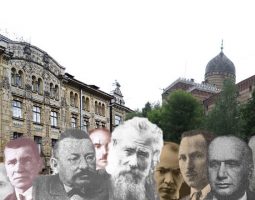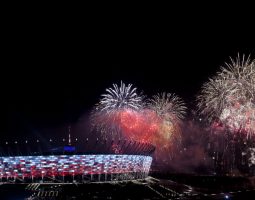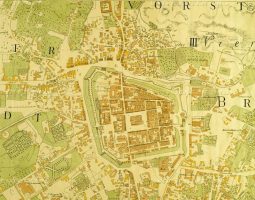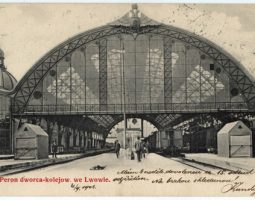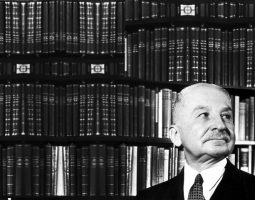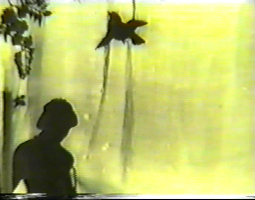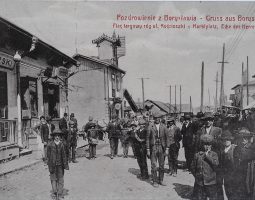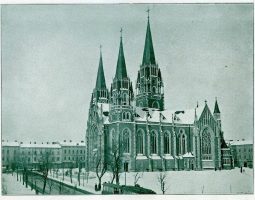The Center regularly organizes conferences, seminars and workshops focusing on urban experiences, historical developments and modern challenges, with viewpoints from different disciplines and academic approaches. Over time, our partnership network has broadened to include universities, institutions, and projects in Ukraine, Poland, Germany, Israel, the U.S., Austria, Hungary, Sweden, Lithuania, Great Britain, Switzerland, Canada, and the Netherlands. By including public events or digital formats into their programs, we link our academic, digital and public history programs to contribute to broader conversations.
Conferences and workshops are crucial for communicating, introducing, and revisiting ongoing discussions and approaches to studying the cities and the region. They reflect our broader research focuses and are crucial in shaping and developing them, as well as exploring the possibility of new avenues for our research program. Thus, our research focus on cities, wars, and recoveries in the 20th century was enhanced by a series of academic events dealing with the urban perspectives on the history of the First World War, revolutions, and their aftermath: a workshop “Urban Experiences of the Great War in Eastern Europe” (2016), a conference “Multiple Endings? Cities of Eastern Europe in Wars, Revolutions, and Recoveries, 1917-1920s” (2018) and a symposium “Wars, Violence, and Revolutions in Ukraine (1914–1923): Academic and Public Perspectives” (2019).
Over the years, the Center's researchers have paid increasing attention to the 20th century, and the experiences of cities in socialism. The international conference "The Ins and Outs of Socialism: Visions and Experiences of Urban Change in the Second World" organized within the framework of Second World Urbanity research network in 2017 and the workshop on architectural photography "Phototecture of Modernism" in 2018 outlined the possibilities of reflecting on socialist urban experiences in global and local perspectives. They were crucial in advancing our research focus on urban professionals, expertise, and planning.
Research and reflection on heritage was a major topic from the very beginning of the Center’s work. Our first large international conference “Jewish Heritage and History in East Central Europe” in 2008 brought together researchers and practitioners to discuss urban heritage and legacies in cities with multi-ethnic pasts and with multiple and often contested narratives. It was crucial in formulating one of our research focuses on urban heritage and generated several initiatives and projects in our program in public history and digital history.
Particularly important for exploring and reflecting the ways of engaging with urban history and cityscape and developing our research on public history and the cities were workshops organized within our summer schools on Jewish history and heritage: "Jewish History Sites in Lviv: Art, Heritage, Commemoration" (2015), "Lemberg/Lwów/לעמבערג/Львів: Literary and Artistic Paths of a Multicultural City" (2016), and "The Power of Museums: Preserving Heritage, Interpreting Past, Shaping Identity" (2017). The topic of memoryscapes in the cities in Ukraine is at the core of a series of workshops "How Cities Remember and How Cities Forget," organized in cooperation with the Center.
Several conferences and workshops were crucial in discussing research on culture in the modern societies and helped shape our research focus on urban cultural infrastructures. The international symposium “Urban Legacies: Culture in Practice and Public Policies in East and Central Europe” (2015) explored new approaches for understanding subcultures in cities highlighted the importance of cultural institutions and their infrastructural legacies.
Critical for advancing discussions on the possibilities and challenges of digital history among researchers at the Center is the series of Digital History Seminars (DHS) launched in 2016. They explore methodological, ethical, and theoretical aspects of generation, collection, and analysis of digital or digitalized photographs and video recordings as testimony on the past. The seminars also touch upon the issue of awareness capacity of historical visual data used for different audiences. Recent editions include: "Historicity of the Visuality and Image History: New Forms of Digital and Visual History/Humanities" (2019), "Digital History Project. What Makes It Work" (2018), and "Digital Mapping and Historical Imagination" (2018).
While the city of Lviv is often discussed as a case across all our conferences, some of them focus on this city specifically. In 2010, the conference “Lviv as a Mirror” addressed the often-conflicting narratives about Lviv in the 20th and 21st century. In 2013, the Center co-organized a workshop “History of Cities and Cartography: Methods of Implementation” around the developments of the project “Historical Atlas of European Cities” in Ukraine and the first volume dedicated to maps of Lviv. In 2014, the conference "Urban Spaces of Lviv/Lwów/Lemberg: Conceptions, Experiences, Practices” problematized the concept of space using the example of one city.
We are also open to explore topics that are beyond our thematic focuses and that help us to challenge or expand our thematic framework, to reach broader audiences by promoting discussion and connections to our public history program. The “Sex in the Cities: Prostitution, Sexual Slavery and Sexual Minorities in East and Central Europe” conference (2009) took up the issues of social control, sexuality, and the phenomenon of ‘deviation’ in the cities of Eastern and Central Europe in the 19th-20th centuries and was combined with our exhibition “Eros and Sexuality: A Century of Coercion, Control, and Emancipation.” Such combination helped to actualize and contextualize a historically recent understanding of sexual rights as an indispensable part of human rights in general. In 2017, the international workshop "Placeless/Placeness: Ideas of Rights and Justice in Eastern Europe" was inspired by the story of two legal thinkers and lawyers, Raphael Lemkin and Hersch Lauterpacht, and by the book East West Street by Philippe Sands (a co-organizer of the workshop). Together with the unveiling of memorial plaques and the theatrical performance "East West Street: A Song of Good and Evil” at Lviv Philharmonic it was both a symbolic return and recognition of lawyers and an attempt at critical reflections on urban past.
While most of our conferences and workshops take place in Lviv, we cherish the possibility to join and co-organize programs in other locations in Ukraine and abroad. The Center was a co-organizing institution for the international conference "Between Kyiv and Vienna: Histories of People, Ideas, and Objects in Circulation and Motion," which took place in Vienna and concluded the "Cultural Year Austria-Ukraine 2019."
